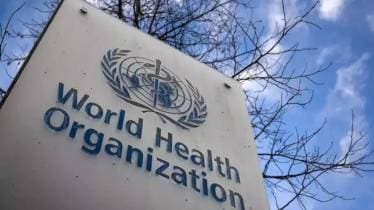The World Health Organization (WHO) on Wednesday published the guidelines on the clinical management of diphtheria. The only previously available guidance was an operational protocol.
According to a press statement, the new guidance followed the rigorous process for developing guidance at WHO.
It addresses the use of Diphtheria Antitoxin (DAT) in the treatment of diphtheria. It is noteworthy that there is a worldwide shortage of DAT and evidence-based recommendations on the use of DAT were requested by many Member States.
The guidance also includes new recommendations on antibiotics. In patients with suspected or confirmed diphtheria, WHO recommends using macrolide antibiotics (azithromycin, erythromycin) rather than penicillin antibiotics.
“This clinical practice guideline has been rapidly developed recognizing the global increase in diphtheria outbreaks. Outbreaks of diphtheria in Nigeria, Guinea and neighbouring countries in 2023 have highlighted the urgent need for evidence-based clinical practice guidelines for the treatment of diphtheria. Given the sporadic nature of outbreaks, many clinicians in the affected regions have never managed acute diphtheria and its related complications,” the global health agency stated.
Diphtheria remains a neglected disease and vaccination is the top priority. At the same time, for patients with diphtheria, access to antibiotics, DAT and supportive care can be lifesaving, WHO says.
In 2023, outbreaks of diphtheria in Nigeria, Guinea and neighbouring countries and the incidences have highlighted the urgent need for evidence-based clinical practice guidelines for the treatment of diphtheria. According to WHO, due to the sporadic nature of outbreaks, many clinicians in the affected regions have never managed acute diphtheria and its related complications.
What is Diphtheria?
Diphtheria is a serious contagious bacterial infection of the nose and throat. According to WHO, Respiratory diphtheria is caused by strains of Corynebacterium diphtheriae, which have an affinity for the upper respiratory tract (nose and throat) and produce a toxin that causes local disease and, in severe cases, airway compromise and systemic complications.
Although diphtheria can be treated with medications, in advanced stages, the bacterial infection can damage the heart, kidneys and nervous system. Even with treatment, diphtheria can be deadly, especially in children.
Diphtheria spreads from person to person mostly through the air, and less frequently by direct contact. The incubation period is usually from 2 to 5 days.
What are the current treatment options?
The current treatments include:
- neutralization of unbound toxin with DAT;
- antibiotics to prevent further bacterial growth;
- monitoring and supportive care to prevent and treat complications, e.g. airway obstruction, myocarditis. In patients with imminent airway obstruction, urgent airway intervention may be lifesaving. The possible options include basic airway manouevres, endotracheal intubation, cricothyroidotomy (needle or surgical approach), and tracheostomy. The risks and benefits of each approach will depend on the experience of the treating medical personnel.
What are the new recommendations?
WHO has issued the following new recommendations:
- In patients with suspected or confirmed diphtheria, WHO recommends using macrolide antibiotics (azithromycin, erythromycin) in preference to penicillin antibiotics.
- In patients with suspected or confirmed diphtheria, WHO recommends not to perform routine sensitivity testing prior to administration of diphtheria antitoxin (DAT).
- In patients with suspected or confirmed symptomatic diphtheria, WHO suggests an escalating dosing regimen for diphtheria antitoxin (DAT) which is based on disease severity and time since symptom onset, in comparison with a fixed dose for all patients.
Meanwhile, WHO has strongly recommended using macrolide antibiotics (azithromycin, erythromycin) in preference to penicillin antibiotics. According to WHO:
- Antibiotics should be administered alongside DAT and should not be delayed.
- Recent evidence suggests that there is increasing resistance to penicillins and less resistance to macrolide antibiotics. Local antimicrobial susceptibility testing is vital to ensure the ongoing appropriate use of antibiotics.
- The choice of macrolide will depend on availability and feasibility.
